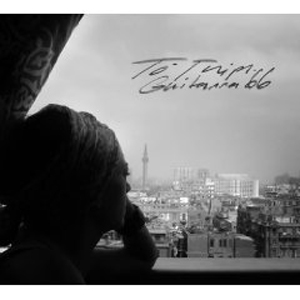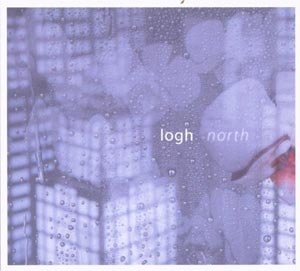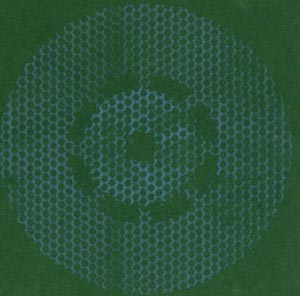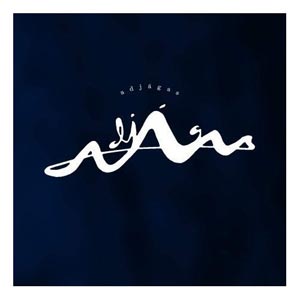|

 |  |
“A romantic album, Mediterranean, with Portuguese roots. An Iberian album gazing upon the Atlantic. It crisscrosses voyages through the African desert, evokes the latino neighborhoods of US cities, beckons the south seas”. (TÓ TRIPS)
Portuguese underground legend TÓ TRIPS (Tó is the short name for António, Trips is pretty much self-explanatory), releases his first solo – and acoustic – album after two decades of producing fiercely uncompromising and original sonic music. In the nineties, TÓ’S former band opened for Sonic Youth and the Manic Street Preachers, in Lisbon.
Since 2001, TÓ’S current duo project, Dead Combo, was invited to perform live in Amsterdam, London, Gdansk, Newcastle, Madrid, Barcelona, Milan, Nice and Brussels. TÓ has also shared the stage with Rhys Chatham, Gary Lucas, Howe Gelb and just last January opened for Sir Richard Bishop. From John Dowland’s XVI century airs to Joaquin Rodrigo’s guitar works, from Peter Walker to Marc Ribot, with impressions of Cape Verdean music, Cuban son, Brazilian choro, north africa’s oud music, “Guitarra 66” never becomes a “TÓ TRIPS Plays…” album. It’s much more the case of an original work of someone deeply haunted by all this traditions.
It may not be self-evident, but “Guitarra 66” is as much about Portugal as it is about the World. And over the idea of gathering travel impressions and echoes of foreign lands hovers the voice of the heart – alas, nothing new for the traveller who recognizes that only at the end of the path will he find himself. Far from a chronicle, the album is instead a generous first person account of one who knows that, sometimes, we need nothing more than the wind blowing through the trees. This perspective legitimizes the poetic dimension of a gesture that’s always demanding and seldom obvious: looking upon the World without forcing a meaning unto it. This music is the longing of someone who insists on gazing upon the horizon. And someone who has so often reinvented himself – who has known so aptly how to survive – needs no other subject matter. This will lead us to the theme – this one, self-evident – of this solo work: TIME. And, unavoidably, about the personal perspective of someone who knows that the adventure starts with our very first breath. TÓ was born in Lisboa, Portugal, in 66. He’s 43 years old and has just delivered a beautiful and candid testimonial on what that means.
In the 80s, in what was referred to as Modern Portuguese Music, the impact of TÓ’S first band – Amen Sacristi – was but a footnote. TÓ remembers the group’s main influence as the Chameleons. This reference on his musical route appears side by side with names like Steve Albini’s Big Black, Glenn Branca and, naturally, Sonic Youth. As the decade drew to an end, TÓ was invited to join Santa Maria Gasolina em Teu Ventre (Holy Mother Gasoline in Your Womb), an influential underground band. If they ran out of fuel, TÓ, on the other hand, showed no signs of slowing down and started Lulu Blind. The band had its shining moment in 93 on the historic opening of Sonic Youth’s Lisboa gig (in which, famously, Thurston Moore wore a Lulu Blind t-shirt on stage) and, months later, sharing a stage with the Manic Street Preachers. But in Portugal, as opposed to just about everywhere else in the post-grunge world, “underground” never meant “mainstream”. Not surprisingly, a change of pace was required. TÓ TRIPS joint project with Pedro Gonçalves – Dead Combo – sought to answer that need.
The band’s checkered style – part-Morricone, part-Tom Waits – knotted the audience around it. And a growing budget assured guest artist credits for such icons as Howe Gelb and Kid Congo Powers. All that happened over these last five years (including gigs abroad) might have built up a necessity, for TÓ, to open wide doors that were still shut. “Guitarra 66” brings forth a quieter world out of melodic pieces born in a noise aesthetic, which has always been TÓ’S primary habitat as a guitar player (including playing in local shows of Rhys Chatham’s large scales works). But in this case it also takes its shape from an artistic need two decades in the making: personal meditation. TÓ pragmatically sums it up: “a romantic album, Mediterranean, with Portuguese roots. An Iberian album gazing upon the Atlantic. It crisscrosses voyages through the African desert, evokes the latino neighborhoods of US cities, beckons the south seas”. From birth to shared life, “Guitarra 66” speaks of cycles. “Guitarra 66” has an ambiguous relation with tradition.
TÓ would hardly be blindsided by his admiration for the late Carlos Paredes’s work (the Portuguese Guitar genius) on a solo classical guitar album. Though he might act on “influences”, he does his best to lose them in the chase. His technique digresses and draws ellipses. Agile, as few are, in presenting his basic melodies, he would rather follow his inner voice rather than lead them straight to a safe harbour – like an adventurer itching to arrive at a crossroads. The voyage metaphor has a direct translation in many songs. On these, also, you hardly ever travel between two points relying on a straight line. Tradition was mentioned only to establish that nothing as fictional as this can ever be traditional. Each song reveals itself as a unique construction. If Howe Gelb’s “attitude” inspired Dead Combo, Marc Ribot’s (on his 93 acoustic album “Solo Guitar Works of Frantz Casseus”, for instance) soon “influenced” TÓ TRIPS. Nothing beyond this, however, can be glimpsed in the music. Because no-one, anywhere – and this is the biggest accomplishment in a context filled with such an extensive repertoire – could have created “Guitarra 66”.
Song by song unfolds as BIOGRAPHY, CHRONOLOGY AND GEOGRAPHY: “‘Guitarra 66’ takes flight from my birth year and crosses it, symbolically, with Route 66 – it has that road feel about it, and its both quiet and exotic. ‘Pinacoolata’ is, stylistically, more expansive. It’s a variation on a Latin-American theme and I imagine it on the streets. If the bass line stays there the rest gets thicker and foggier. ‘Traffic’ has a more abstract nature and its technical execution is trickier. There’s a lot of movement, unexpected pauses and suddenly, the approach of a troubled sea. ‘Spanish Letters’ tells of a longing for Spain. I like being right beside Spain. Taking off on the road, riding with the heat all the way up to Barcelona and then down the coast. That sound of the romantic guitars in flamenco always struck me as beautiful. I make my departure and then return to elements associated with flamenco technique, but it’s more of an inner-courtyard theme, of shadow at midday, almost classical within an idea of Mediterranean tradition, of madrigals. ‘Rua da Inquietude’ is a song I had ready for years now. I always imagined something like a silent movie between the trams of Lisboa.
On the album it stands almost with the logical structure of an interlude. ‘I Love You Air’ is the ballad. There is a double meaning to the title, because first I was thinking about how I like to make my daughter go to sleep while I stroke her hair, but the translation of the gesture to the guitar music is so ethereal – so I ended up using the word ‘air’. ‘The Road to Aït Benhaddou’ evokes a beautiful road which starts in Marrakesh and crosses the Atlas Mountain. It was an amazing trip and I mean to go back. This is the first song on the album in which percussion makes an appearance. It features wind-chimes, rattles, wood, all with the objective of underlining a mysterious atmosphere. The chords also come up in the song, like kilometers on a road, with minimum variation, leading on to infinity. ‘Old Times on the Balcon Jack’ reminds me of waking up in New York with a long morning in front of me. In it I hear echoes of a certain time, Marlon Brando in ‘On the Waterfront’, for instance, shaving with a wife beater on. In ‘The Wind Blows’ I come across memories of wind beaten planes, out of focus landscapes. It’s lonely. It has an earthy smell. And it stands between blues and country.
‘Ponzo’ has the sound of rain. It’s sort of a lost village. The melody lies between Fogo, Cape Verde and Mexico, between the morna and mariachi, but with mud everywhere. ‘Esmoriz’ is the name of the small coastal town where I recorded the album, with the North Sea beating on the piers in the distance. In closing, there’s ‘Electric Marrakesh’. A mantra-like piece with free percussion. There are melodies which make their stand, but structure doesn’t really hold them down – like in the city itself, where there is a mix of the medieval, religious, pagan, and Arab, all in one public square. It’s the song of the spectator who ends up breathing whole the air of a different place”.
(Quelle: Alive!, 2009)
FORMAT: CD
|







